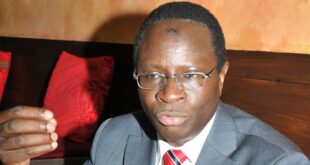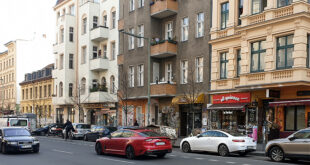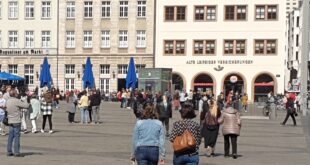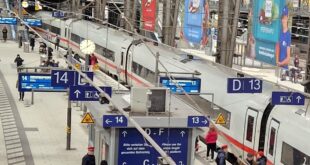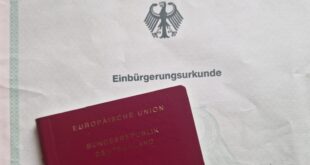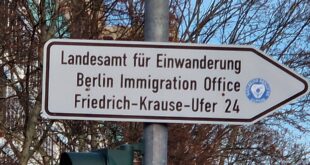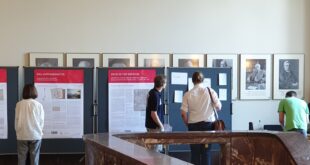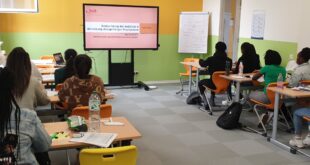Around 9 per cent of the newly-elected MPs in North Rhine-Westphalia have a migration background, investigation by Mediendienst Integration, a service platform for journalists on issues of migration and integration in Germany, has found
——
Germany’s most populous federal state, North Rhine-Westphalia (NRW), elected a new state parliament on 15 May. According to the findings of Mediendienst Integration, 17 of the 195 MPs elected have a so-called migration background. That is 8.7 per cent of the members of parliament. By comparison, 31.7 per cent of the population of the entire federal state have a migration background.
Anyone who does not have German citizenship at birth or has at least one parent by whom this is the case has a “migration background”.
According to the research of the daily newspaper Rheinische Post, ten out of 199 members of the immediate past NRW state parliament had a migration background. That corresponds to about 5 per cent.
Overview of the parliamentary groups in the new NRW parliament
– The AfD has the highest proportion of MPs with an immigrant background: 2 out of 12 MPs, or 16.7 per cent of all MPs in the parliamentary group,
– followed by the Greens with 6 out of 39 MPs (15.4 per cent).
– for the SPD it is 8 out of 56 MPs (14.3 per cent)
– and for the CDU it is one out of 76 MPs (1.3 per cent).
No FDP MPs with a migration background entered the Landtag.
An African contested at the election and if he had won, he would have made history as the first African-born MP in NRW, a state of 18 million inhabitants. Running on the platform of the Greens in the city of Hamm, 31-year-old Nelli Soumaoro ran an impressive campaign but unfortunately did not make it into parliament. Given the ample support he received during his campaign from party leaders, observers say the Guinean-born politician has a promising future ahead of him in German politics.
Overview of the MPs
– SPD: Dilek Engin, Ibrahim Yetim, Rodion Bakum, Serdar Yüksel, Volkan Baran, Tülay Durdu, Gordan Dudas, Anna Teresa Kavena
– Greens: Berîvan Aymaz, Mehrdad Mostofizadeh, Jule Wenzel, Gönül Eğlence, Meral Thoms, Ilayda Bostancieri
– AFD: Enxhi Seli-Zacharias, Carlo Clemens
– CDU: Christos Katzidis
Nine of the 17 MPs with a migration background entered the parliament via the parties’ state lists, the most among the Greens (5 MPs). Eight MPs won a direct mandate in their constituencies, most of them with the SPD (6 MPs).
READ ALSO African vies for parliament in German state election
In the run-up to the election, WDR investigated how many direct candidates with a migration background stood in the state elections. According to the survey, about 15 per cent of the direct candidates had a migration background. The Greens had the highest proportion with around 21 per cent. The lowest percentage of candidates with a migration background was found in the CDU with about 8 per cent.
The result of the NRW election shows that people with migrant background are grossly underrepresented in politics which is why many campaigns have been carried out in recent years to encourage a more active participation in politics by non-native German citizens.
Femi Awoniyi with the report of Mediendienst Integration
 THE AFRICAN COURIER. Reporting Africa and its Diaspora! The African Courier is an international magazine published in Germany to report on Africa and the Diaspora African experience. The first issue of the bimonthly magazine appeared on the newsstands on 15 February 1998. The African Courier is a communication forum for European-African political, economic and cultural exchanges, and a voice for Africa in Europe.
THE AFRICAN COURIER. Reporting Africa and its Diaspora! The African Courier is an international magazine published in Germany to report on Africa and the Diaspora African experience. The first issue of the bimonthly magazine appeared on the newsstands on 15 February 1998. The African Courier is a communication forum for European-African political, economic and cultural exchanges, and a voice for Africa in Europe.




